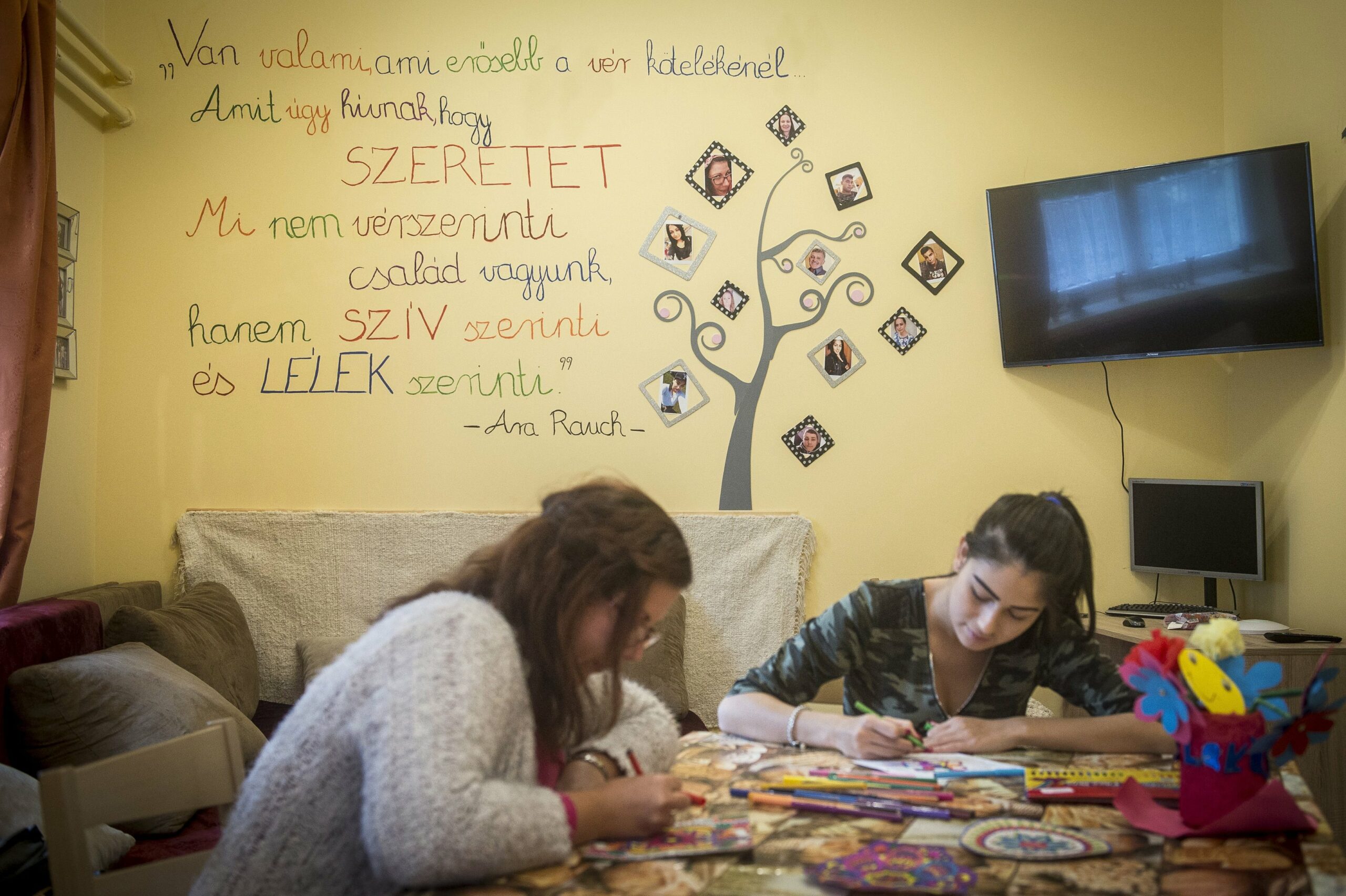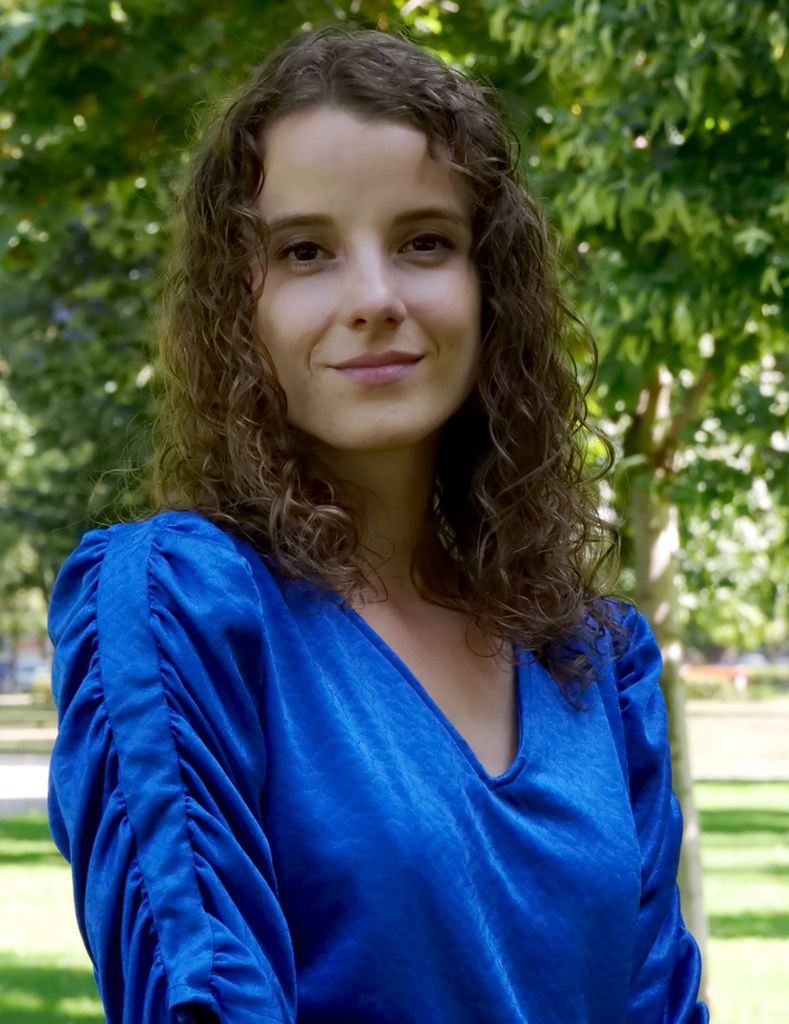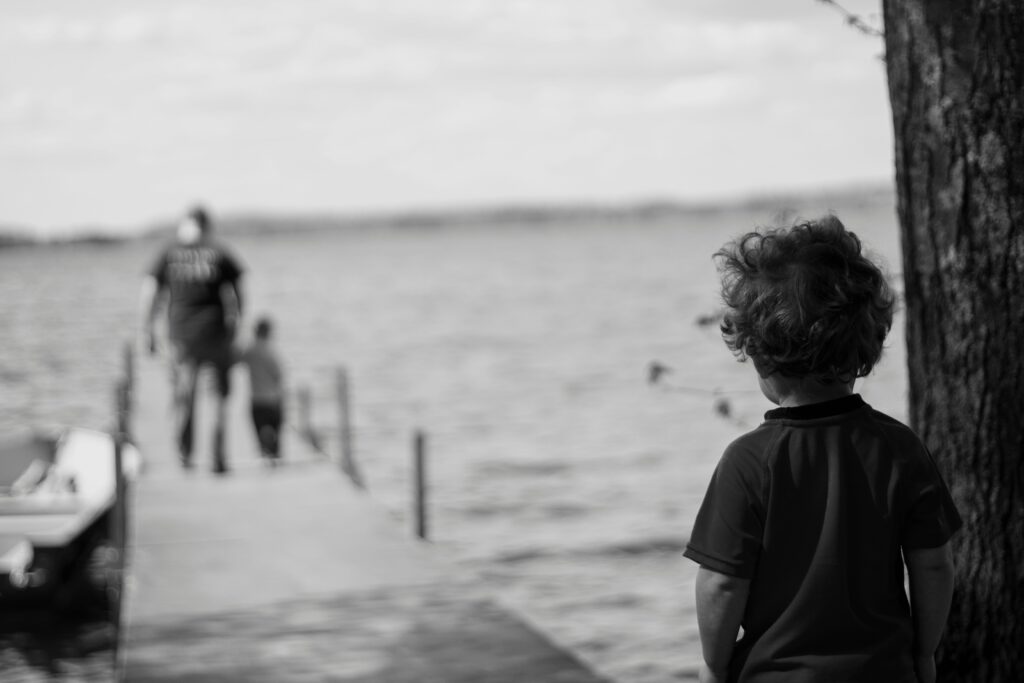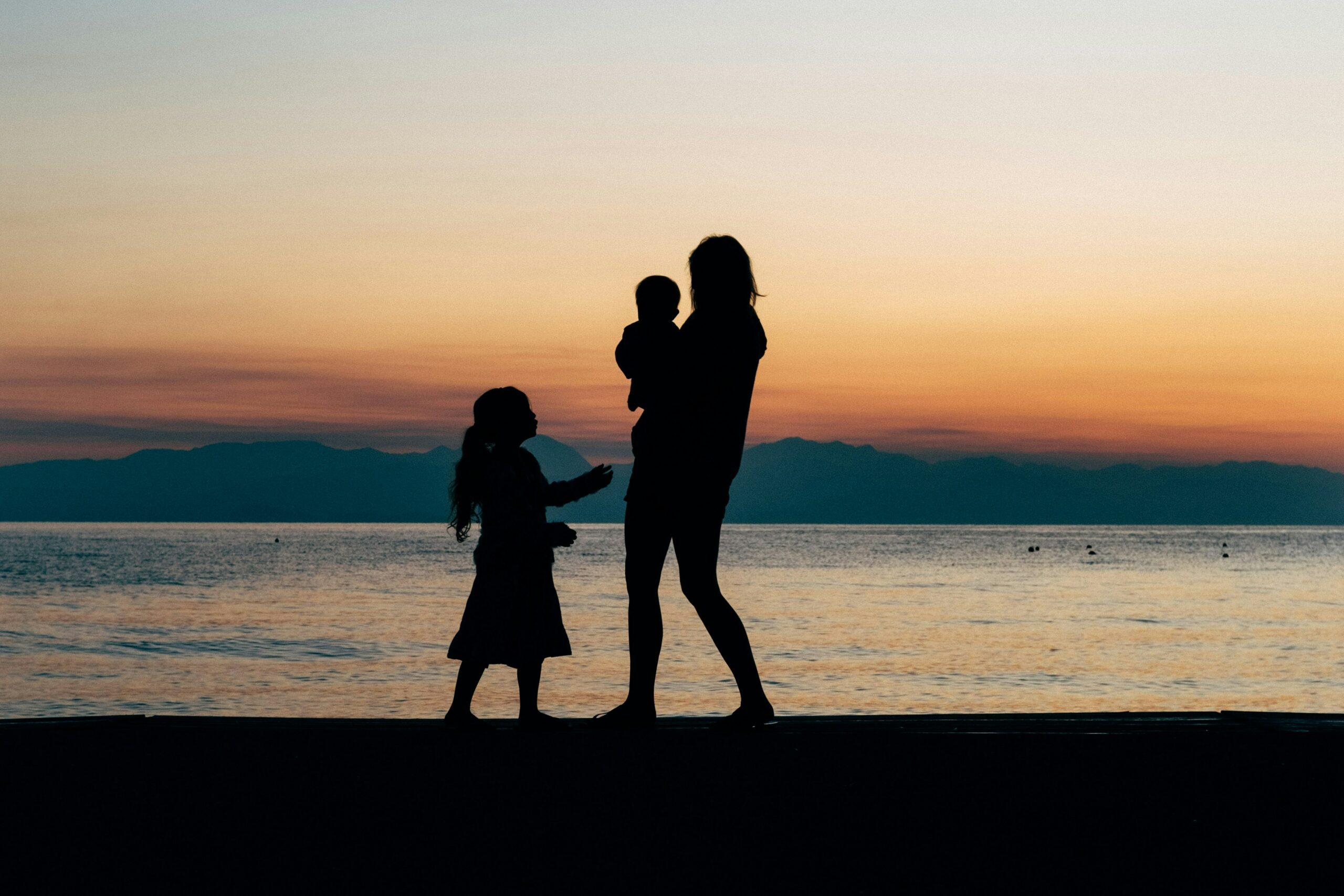The https://english.atlatszo.hu use cookies to track and profile customers such as action tags and pixel tracking on our website to assist our marketing. On our website we use technical, analytical, marketing and preference cookies. These are necessary for our site to work properly and to give us inforamation about how our site is used. See Cookies Policy
Healthy white babies stay in Hungary while some children only find homes abroad
Although the Hungarian government claims that child protection has improved a lot in the last decade, experts speak of systematic breaches of the law, lack of prevention and discrimination against children of Roma origin. This is partly confirmed by studies by the Dutch and Belgian governments analysing the domestic child protection system. Indeed, if domestic adoption attempts are unsuccessful, children are tried to find families abroad. Recently, international adoptions have been investigated in several places and stopped in some countries because of irregularities.
“Hungary’s youth protection legislation is in good order. In practice, the focus is on the prevention of separation between parents and child and return if the child is removed from the home.” „There is also ‘extra support for minority groups such as the vulnerable Roma target group” – says a Dutch language document published by the Ministry of Justice from late 2023, which comes after the Netherlands decided to investigate international adoptions and check all sending countries after several irregularities came to light.

The document, prepared by the Dutch government, was for internal use, but an earlier version was much more critical of Hungary’s child protection system and the process of adoption, but this information has since been removed from the document. Experts also disagree with the findings of the Dutch study, which paints a rather positive picture of what many see as a deteriorating situation in Hungary.
Preference for married couples
If domestic adoption efforts have not been successful, international adoption can be considered. International adoption is when the child is placed in another country, regardless of the nationality of the adopter. However, according to a document from the Ministry of Culture and Innovation, in the case of an application from abroad
only married couples will be accepted for adoption
as “in the interests of a minor child, the guardianship authority will primarily authorise adoptions by married adopters”.
International adoptions are longer than domestic adoptions because they involve the cooperation of central authorities in several countries. According to the ministry, it is not uncommon for children adopted to include children with minor or major health problems or siblings.
Most Hungarian children are adopted from Italy
Data obtained from the Ministry of Culture and Innovation through FOI request shows that a total of 1706 children have been adopted through international adoption in the last nine years.
This represents almost 20% of all adoptions.
Most minors were adopted from Italy, with more than half of all children adopted in the last nine years.
Italy is followed by Spain, the United States and the Netherlands, but significantly fewer children have been adopted in these countries.
In mid-April, there were roughly 100 pending adoptions altogether, involving just over 140 children.
Data show that it is more common for a child to be taken abroad – only a quarter of international adoptions in nine years involve a sibling.
Skeletons in the closet
Recently, scandalous cases of children who have been unlawfully separated from their families have been reported abroad. In several countries, investigations have been launched into international adoptions following the scandals. We are not aware of any similar cases involving Hungarian children, but some of the investigations have highlighted several problems with the Hungarian child protection system.
At the beginning of 2024, Norway was considering halting overseas adoptions. Half a year later, in June, it was announced that international adoptions from Peru, South Africa, the Czech Republic and Hungary would be suspended, as they saw no guarantee that adoptions would be carried out legally and ethically.
Norway pointed out that Hungary consistently ignores the basic principles of international adoption.
Denmark’s overseas adoption agency has also announced that it was ceasing operations amid concerns about falsified documents concerning adoption procedures. The Danish authorities launched an investigation into the matter which revealed systemic violations of the law.
International adoptions suspended in the Netherlands too
In 2021, the Dutch government temporarily suspended adoptions from abroad after uncovering serious abuses, including examples of corruption, falsification of documents, child trafficking and child abduction. The commission studied adoptions of children from Bangladesh, Brazil, Colombia, Indonesia and Sri Lanka, mainly between 1967 and 1998.
A year later, it was decided that adoptions could continue, but only from a limited number of countries and under strict conditions. A study was concluded of every country where adopted children come from to examine whether countries comply with international agreements laws and regulations regarding adoption and child protection.
According to the Hungarian Ministry of Culture and Innovation (KIM), the legal environment and procedural guarantees of eight countries, including Hungary, were finally considered sufficient.
However, a preliminary version of the country analysis was much more critical of Hungary and said that poverty (along with limited prevention and early intervention services) is one of the most common reasons children do not grow up with their parents. In the final, published piece, it is only noted that ‘there is a lot of poverty‘ in Hungary.
The internal version of the report states that ‘on average forty per cent‘ of parents object, although ‘rarely‘ an appeal follows. The Ministry of Justice said to Investico and Zembla in connection to the information lost in the publication process that the information about poverty and legislation was ‘outdated‘ and was therefore not published.
In May, the Dutch government decided to immediately halt international adoptions, meaning that the country will no longer permit its citizens to adopt children from foreign countries. The decision does not affect ongoing procedures, but no new applications will be accepted.
Orange rating for Hungary
The Flemish government has also launched an investigation into international adoptions. As a result, Hungary was given an „orange” code, which means that „doubts have been raised about cooperation” and a working visit is needed to clarify the situation.
A „red” would have meant an immediate halt to adoption, meaning orange is the second worst rating, ahead of „green”, which was given to countries where everything was found to be in order.
Cooperation with an orange partner continues until the working visit, which is scheduled for Hungary at the end of 2024, which means that essentially, nothing will change until then.
Vlaams Centrum voor Adoptie (VCA) said that the investigation is an important starting point to see what the basic conditions are in a country, but it is also important to check that they work in practice.
The organisation stressed that the topic of discrimination needs to be further investigated during a working visit because removing children from their homes is the first step in the adoption process.
„Hence the orange score. Prevention is not the strongest part of Hungary’s youth protection policy.”
Child protection in Hungary has serious problems
Although the Hungarian government likes claiming that the protection of children and families is a priority, data from the Hungarian Central Statistical Office (KSH) and experts confirm that there has been little real improvement in child protection.
We wrote in detail about the shortcomings of the child protection system and the experience of the past decade in May. Szilvia Gyurkó, founder of the Hintalovon Children’s Rights Foundation, told Átlátszó that the main problems are the lack of preventive services, the exposure of basic child protection services, the lack of resources and the limits of their intervention possibilities.
The children’s rights organisation’s latest report, from 2023, puts it bluntly that it was “incredibly difficult to be a child”.
Léna Szilvási, the head of SOS Children’s Villages, told Átlátszó last year that although we have an excellent child protection law, its implementation is not good. At the time, Léna Szilvási said that „state funding for child protection is much lower in Hungary” than in other European countries.
Poverty is most often the reason for removing a child from their family
UNICEF Hungary said in a statement at the beginning of 2024 that one of the main challenges facing the child protection system is the lack of effective prevention. Children’s best interests are served by being brought up in their own families, and the state’s primary responsibility should be to prevent children from entering child protection services.
Although the law states that poverty alone should not be a reason for removing a child from his or her family, this is not the practice case. A 2017 report by the Commissioner for Fundamental Rights also found that
almost a third of children are placed in state care primarily because of the family’s financial situation.
Ilona Boros, a lawyer at the Hungarian Civil Liberties Union (TASZ in Hungarian) and the head of the NGO’s Equality Project, a programme for disadvantaged people, told Átlátszó: “We started working on child removal around 2015, and in 2016 we launched a campaign called Missing Memories.” Over the years, they managed to bring 15-18 children home to their families.
Among them were the children of a family in Korlát, Borsod-Abaúj-Zemplén County, who were separated from their parents in June 2020, claiming that the house they lived in had become unsafe.
All this happened even though the family’s housing problem was temporarily solved with the intervention of the local government, and an unprecedented level of cooperation was established in the village. The six siblings were also separated from each other and placed with three different foster parents. In December, HCLU reported that after more than four months, they were able to return home to their parents.
“It is not only legally, but also psychologically and professionally damaging that children of Roma origin, who live in extreme poverty and are typically disadvantaged, are taken away from their parents and placed in specialised care,” said the lawyer.
Few children can return to their families
Poverty is also the reason why, although it is theoretically possible, few parents get their children back after they have been removed from the family.
In theory, parents can seek redress. They can challenge the temporary placement at the moment of removal and later the decision to take the child into care in court, but the lawyer’s experience shows that disadvantaged parents living in extreme poverty are rarely able to do so without help.
In recent years, more than 23,000 minors have benefited from specialised child protection services, i.e. the same number of children living in children’s homes or foster care. In 2023, almost 2,000 of them were waiting for adoption.
A child can be declared adoptable if the parent relinquishes the child or if the parent has no contact with the child for four months. Ilona Boros said that, in her experience, the latter is usually the case, parents will do anything to get their child back.
However, it does happen that contacts are missed, either because of financial reasons or because the parents are unable to arrange a meeting at the given time. Often, they are not even aware of the consequences of missed appointments, how to request a new appointment, or that only personal contact counts, even though they write to their child on Messenger every day or send them small things regularly. That is why they are caught completely by surprise when they receive the decision that their child has been declared adoptable.
“The most common legal aid type, unfortunately, and it is heartbreaking, where they send you a piece of paper saying, ‘Oh my God, now what.’“ – says Ilona Boros. But often, by the time they send it, the 30-day deadline for action has passed. “At that point, all we can say is that we’re very sorry, it is a final decision.” – adds the lawyer.

Residents of the renovated residential homes of the local children’s home of the St. Agota Child Protection Service in Bácsalmás on 6 October 2017, the day of the handover ceremony. Source: MTI/ Sándor Ujvari.
Older, Roma, sick children have worse chances
In 2023, according to preliminary data from the Hungarian Central Statistical Office, 1229 adoptions were approved in Hungary. A similar trend has been observed in recent years, with almost twice as many children waiting for adoption as adoptions taking place in a given year.
A government statement at the beginning of 2021 reported that adoptions are becoming faster and safer, with “parents and children being matched in as little as 9 months”. In practice, however, the waiting time for a healthy child under three can be as long as 4-5 years – the age range most people are looking for.
Last year, 33% of children declared adoptable were over 10 years old. An even bigger deterrent than age is a child with a disability or long-term illness, and for many parents, being of Roma origin can be a disqualifying factor.
In other words, the chances of older children with disabilities or Roma origin being adopted at home are extremely low.
A 2016 study of children in child protection in Nógrád County found that Roma children are grossly overrepresented in the childcare system: although they make up less than 20 per cent of the county’s population, more than 80 per cent of children in state care are of Roma origin. They also found that
most of the children who enter the child protection system rarely return home.
The European Roma Rights Centre (ERRC) also filed a lawsuit against the Ministry of Human Resources (EMMI) in 2017. The case dragged on for six years. The Curia of Hungary (the Supreme Court) ruled on the case in 2023, stating that the principle of equal treatment had been violated, but the ruling said that the children had been discriminated against based on their socio-economic status and that their ethnicity played no role.
The court also ordered the ministry to draw up a methodological guide within 12 months on enforcing the ban on family separations based solely on financial grounds. The one-year deadline expired last February – but no substantive action has been taken, according to Vivien Brassói, lawyer at ERRC:
„Hungarian children should not be placed with persons of foreign nationality”
The rules on adoption last changed four years ago. NGOs say the bill was intended to make it more difficult for same-sex couples to adopt children.
However, it seems that not only single couples are being pushed to the back of the queue when it comes to adoption, but also foreign couples living in Hungary, although under the Hague Convention, foreign nationals living in Hungary have the same rights as Hungarian citizens in the adoption process.
At the beginning of last year, pro-government newspaper Magyar Nemzet reported that a five-month-old baby was wanted by the police after she was unlawfully adopted by a British-Afghan couple. Other newspapers reported that the baby had been kidnapped.
However, a recent report by Telex is more nuanced, stating that the family has received written permission from the guardian to keep the girl until the adoption procedure is completed. However, they later received a call to hand the girl over to the new guardian immediately, which they did voluntarily in January 2023.
Also in January, an inter-professional meeting was held at the Ministry of the Interior to discuss the girl’s case, at which the Budapest Metropolitan Government Office’s position was the following: “Many Hungarian couples would like to become adoptive parents so that no Hungarian children of foreign nationality can be placed with persons of foreign nationality”.
The court eventually annulled the decision to terminate the adoption procedure and found a violation of equal treatment, i.e. discrimination.
We have contacted the Ministry of Culture and Innovation, acting as the Hungarian central authority, on several occasions by e-mail regarding the adoption process and intercountry adoptions, but have not received a reply by the time of publication. The Hungarian central authority in Belgium is working with Het Kleine Mirakel, but the organisation has not responded to our enquiries either.
Written and translated by Zita Szopkó. The original, Hungarian version of this story can be found here. Data visualisations by Krisztián Szabó. This story is part of a collaborative project of the TV program Zembla; Investico, a platform for investigative journalism from the Netherlands; the Flemish weekly magazine Knack; and the newspaper 24chasa from Bulgaria.



